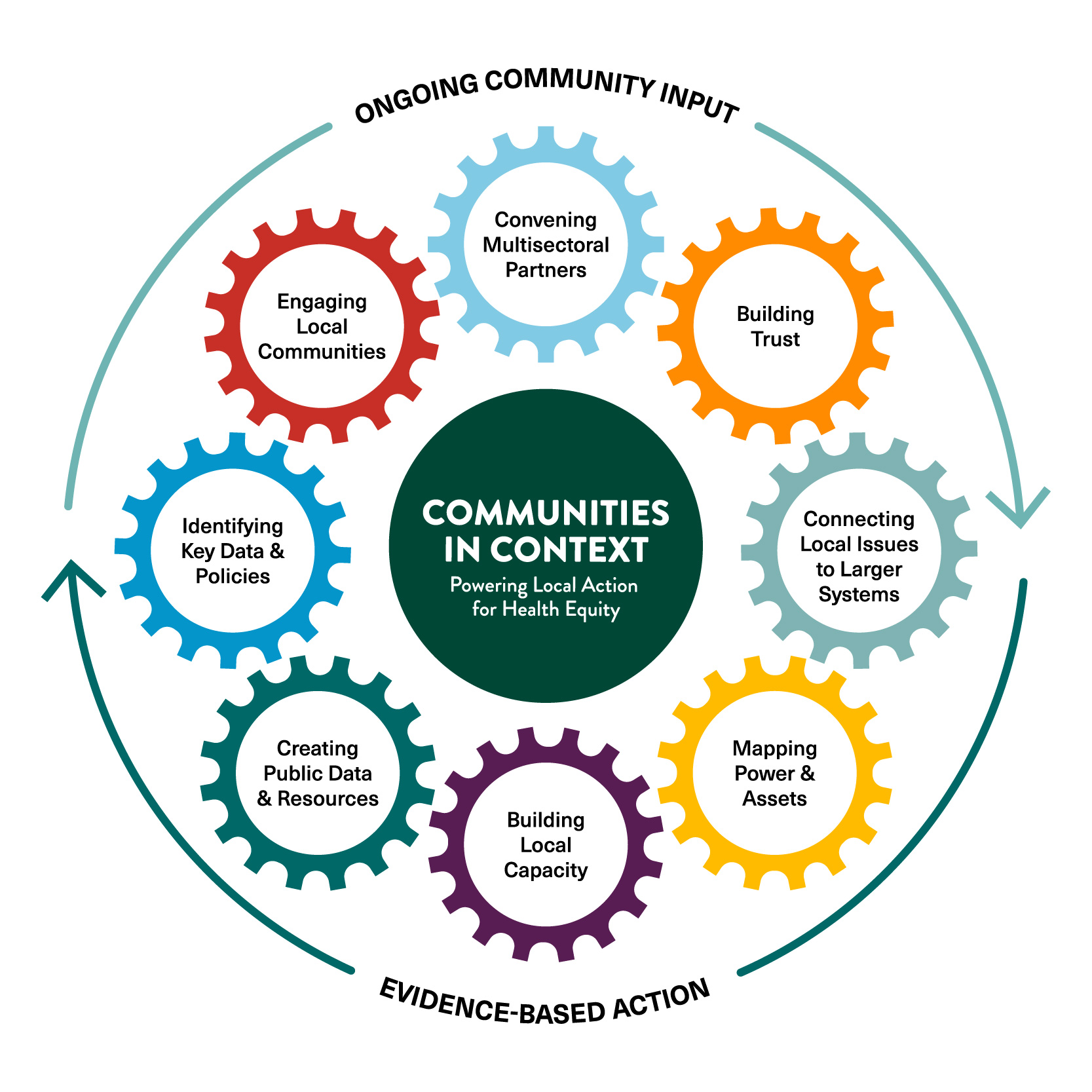National Minority Health Month: Understanding Culture, Community, and Connections to Advance Health Equity
Posted on byApril marks National Minority Health Month! This year’s theme (“Be the Source for Better Health”) focuses on improving health outcomes through our culture, community, and connections. These elements that make us each unique are also critical to reducing health disparities. Recognizing and honoring the strengths and traditions within diverse communities can help improve health outcomes and advance health equity. Together, we can collectively advance health equity by valuing cultural diversity, supporting communities that have been marginalized, and fostering inclusive environments. We must all work together to #BetheSourceforBetterHealth.
The Need for Community Engagement to Advance Health Equity
The COVID-19 pandemic further exposed existing longstanding inequities that systematically undermined the physical, social, economic, and mental health of racial and ethnic minority and American Indian/Alaska Native (AI/AN) populations. It also revealed the limitations of available data to monitor public health issues on factors that impact community health. To address these inequities, we in public health continue working to address and understand the social determinants of health (SDOH) that shape individual and community health, especially the structural and systemic drivers of inequities. Understanding SDOH local to communities as well as the fundamental conditions communities need to thrive (or “vital conditions” – Figure 1) is key to successful public health work. However, we also need to approach public health differently to collect the necessary data to drive evidence-informed action. We cannot understand a community’s issues and solutions without talking to the community.
Figure 1: The Vital Conditions for Health and Well-Being framework, indicating the seven necessary conditions for community resilience. See https://www.communitycommons.org for more info.
Improving Health Outcomes Through Community Data Collection
CDC’s Office of Health Equity (OHE) is engaging communities through collaborative efforts to power local action and advance health equity. In partnership with CDC Foundation, OHE is supporting several initiatives to improve community data collection for evidence-based action to reduce health inequities. Two examples include:
- Project REFOCUS (Racial Ethnic Framing of Community-Informed and Unifying Surveillance): Project REFOCUS works to shift traditional public health emergency response so that communities – as experts in culturally responsive efforts – are continuously involved in public health, not just during disease outbreaks. Project REFOCUS funds community partners to establish data collection systems and social listening protocols that effectively monitor, in real time, the impacts of social stigma and racism on racial and ethnic minority populations as they affect public health crises mitigation and prevention practices. Recommendations for action are not only informed by community voices but further amplified by citizen journalists and ethnic media. Collectively, these efforts bring the framework of social movements to public health to ensure that emergency response efforts remain locally informed, responsive to cultural needs, and that public health institutions remain accountable to the communities they serve.
The Project REFOCUS team is working closely with six communities to operationalize the Crisis Stigma Monitoring and Response System (CMRS) framework: Wake County, NC; Lincoln, AR; San Antonio, TX; Detroit, MI; Albany, GA; and New York, NY.
- Communities in Context (CiC) is a community-engaged approach to gathering local data that is useful to communities’ health improvement goals. CiC centers community members’ voices, experiences, and perspectives as key data. CiC considers the broader factors that influence health – from the social determinants like housing and education to the underlying structures and systems, like economic policies and racism. The goals of Communities in Context are to:
-
- Collect and combine local information with guidance from community, including information on how power and influence operate in the community, existing and needed resources, stories of people’s experiences, state and local health data, and key policies at the state and local levels;
- Work with community members to use local information to define shared priorities for action that can be used by state and local public health and community leaders to improve public health decision-making;
- Create publicly-available and user-friendly resources that communities can use to support informed action.
OHE, Wayne State University, University of Michigan, and the Institute for People, Place, and Possibility (IP3) are partnering to lead CiC in Greater Detroit, Michigan. Other community partners include state and local public health departments, health systems, and community organizations.

OHE’s Communities in Context Conceptual Model. The eight gears listed below indicate key components of the project, working together to power evidence-based action using ongoing community input.
- Identifying key data and policies
- Engaging local communities
- Convening multisectoral partners
- Building trust
- Connecting local issues to larger systems
- Mapping power and assets
- Building local capacity
- Creating public data and resources
Being the Source for Better Health
OHE collects and shares important information on how unique communities, cultures, and connections support local capacity to promote change among racial and ethnic minority and AI/AN populations. OHE is committed to working with communities and partners from various sectors to improve health outcomes and #BetheSourceforBetterHealth.
How are you focusing on culture, community, and connections to improve health outcomes and #BetheSourceforBetterHealth?
Learn more about health equity and how you can play a role in reducing health disparities and developing policies that can help address public health problems in your community.




Post a Comment